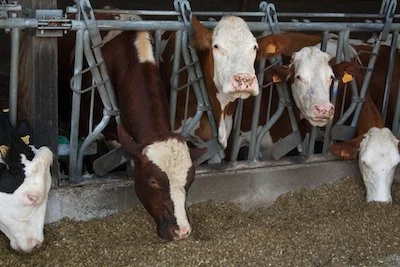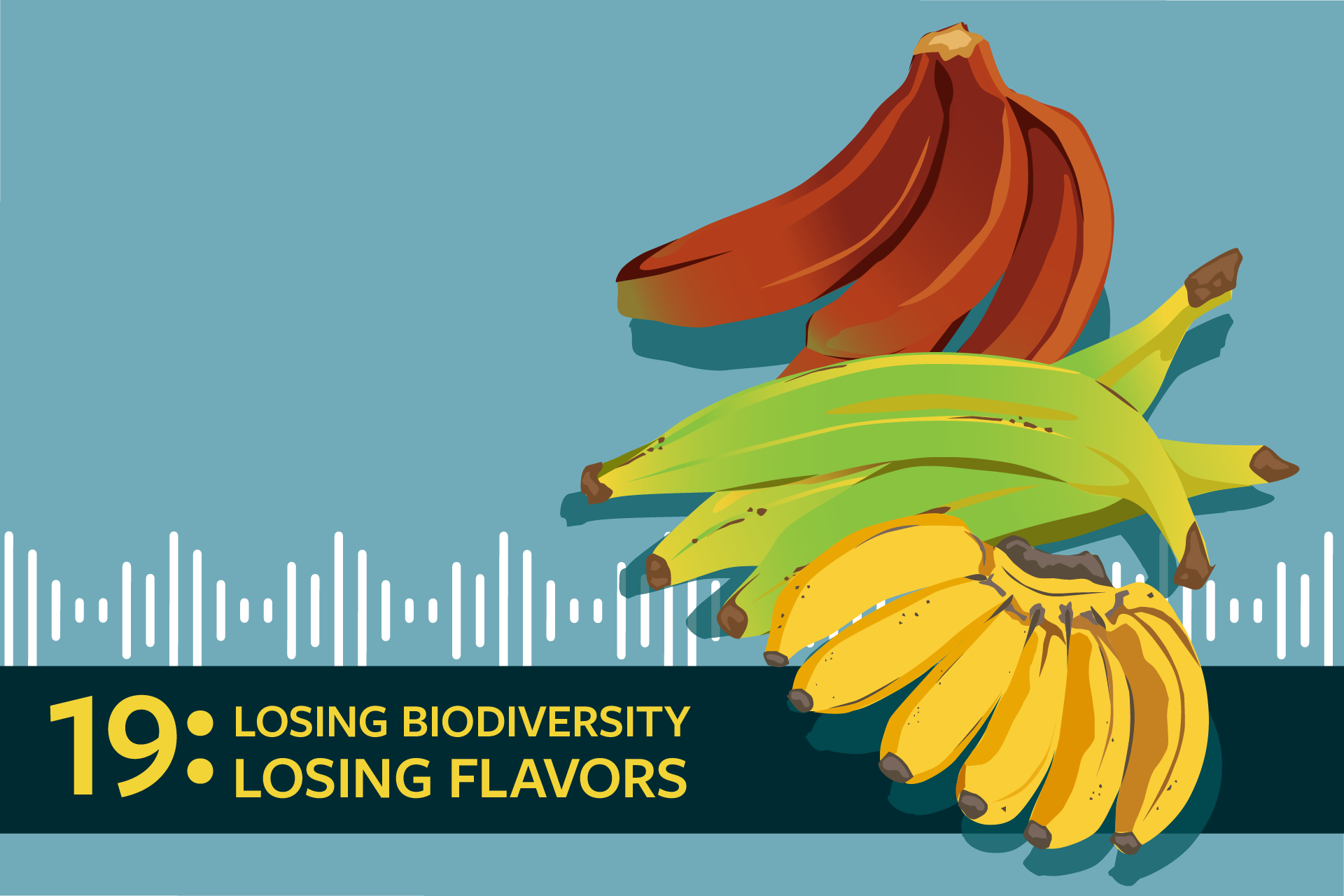This fall, get involved in one of these campus sustainability initiatives
If you’re headed to college this fall — or headed back — there are ample opportunities for you to dig into the critical work of reducing food waste, addressing food insecurity, supporting biodiversity, improving campus food sourcing, reducing plastics and fighting climate change. Many campuses have student programs that are native to their specific campuses, sometimes connected to the office of sustainability (including various iterations of Eco-Reps, Eco Reps and EcoReps!). But there are also several network-based organizations, with chapters at various colleges and universities, through which you can make change locally on your campus while also tapping into a larger organization’s programming, support and networking. You’ll be building your skills in community organizing, lobbying (university officials), coalition building and more — all skills you can use to bring these food and climate fights to the larger stage off campus once you graduate. Because let’s face it, this work will still be needed then.
A great example is Alex Gordon, who we interviewed for our podcast episode on plastic packaging. She got involved in fighting plastics as an undergraduate at Eckerd College in Florida, where she got the school to sign the Break Free from Plastic Treaty, committing to eliminating single-use plastics on their campus. She then built on that experience after graduation, working for campus PIRGs (more below) and coordinating anti-plastic campus activists across New Jersey colleges. She now works for Break Free from Plastic as their U.S. Member Engagement Officer.
Factory farmed meat
If you are vegan or vegetarian — or neither of those things but passionate about reducing industrial animal agriculture and its impacts on animal welfare, climate, workers and more — you might be interested in Plant Futures Initiative. It establishes student-led, plant-centric communities on college campuses, so you can join an existing chapter or start a new one of your own. Chapters engage in a wide range of activities, from institutional change — like a UC Berkeley push to transform Cal Dining to 50 percent plant-based entrees by 2027 — to food celebrations, like a Food4Thought Festival at Harvard.
Another opportunity is the New Roots Institute Fellowship. The New Roots Institute’s mission is to empower the next generation with knowledge and training to end factory farming. As part of that mission they offer fellowships, both virtual and in person, that build fellows’ knowledge, skills and relationships in order to challenge industrial animal agriculture and drive meaningful change both on campus and within the larger community.
Food waste
Food Recovery Network (FRN) started as the idea of a few students on one campus who were frustrated with how much food waste they saw in their cafeterias. Fast-forward 15 years or so, and it is now a national nonprofit that mobilizes college students around the country to recover and donate surplus food from their campuses and reduce greenhouse gas emissions in the process — since food waste in landfills gradually breaks down to form methane, a greenhouse gas that’s up to 86 times more powerful than carbon dioxide. FRN provides technical support, tools and training so that schools can partner with food recovery organizations and redirect surplus food, which would otherwise be wasted, to local nonprofits that feed community members experiencing hunger.
There are hundreds of existing chapters around the country, or you can start a new one if your campus hasn’t gotten involved yet.
Zero waste
Have you ever been on a college campus around move-out day, and seen how much waste gets generated by people deciding that whatever they needed as first-years — clothes, furniture, plastic bins, books, food, toiletries and more — is no longer necessary? This is just the tip of the iceberg of the waste generated on campuses year-round. All over the country, students are working to change that troubling reality with help from Post-Landfill Action Network (PLAN). PLAN, established in 2013, is a collective network of concerned students and campuses across the country that are working together to create a system beyond the “Linear Consumption Economy.” Meaning: They offer plans, templates and support to help schools move past the model of “produce, use once, dispose” and toward something more circular — and they empower students to lead this change.
Another organization working to reduce waste on campuses is Student PIRGs. Student PIRGs is a national network that works to train the next generation of activists to address a range of environmental issues, including reducing single-use plastic through collaborations with national organizations like Break Free from Plastic and Plastic Pollution Coalition. You can join an existing chapter, start one of your own, or simply tap into their experts, resources and advocacy training.
Biodiversity
College campuses filled with grassy quads and majestic old trees are beautiful. But while they may feel nature-proximate, all of those lawns are typically anything but natural. It takes a lot of pesticides to keep them looking vibrant and green — and pesticides are bad for biodiversity, bad for human health and contribute to climate change (among other problems). Re:wild Your Campus is part of the larger Re:wild movement and supports students in changing the way lawns are cared for on campuses: away from toxic pesticides and toward organic practices that are healthier, more environmentally friendly and promote biodiversity. The organization offers advocacy bootcamps for students, a “Green Grounds” certification that “recognizes schools and institutions pioneering the transition to organic land area,” as well as general guidance on going organic and rewilding campus grounds.
The Re:wild Your Campus Student Network provides a space for students (and community members) to connect and share ideas, jobs, internships and knowledge. Members of the network have access to Re:wild Your Campus staff for 1:1 meetings and benefit from exclusive educational opportunities.
Campus food
Real Food Challenge (RFC) launched in 2007, with the goal of getting colleges and universities to change what they bought and served in school cafeterias. They aimed to move away from industrially produced food and toward “real food” — which they defined as food that nourishes producers, consumers, communities and the earth. They soon had hundreds of student affiliate groups at universities across the country, with the common goal of challenging campus dining operations to commit to purchasing 20 percent “real food” by the year 2020. With students at the helm, RFC reallocated more than $80 million in campus cafeteria dollars to local, ecologically sound and humane farms and food businesses.
RFC is currently ramping back up after a COVID/post-COVID fallow period — you can join their email list to learn about current opportunities for connection, or make use of their standards and “real food calculator” any time.
Getting your feet wet with a fall challenge
Each October, Project Green Challenge attracts students from around the world to join together for a 30-day environmental challenge. When you sign up, the organization shares a meaningful eco-themed challenge each day of the month on climate action, environmental and social justice, public health and advocacy (FoodPrint is a partner for the food-themed day). They offer opportunities for deeper learning, and if you are a leader in completing all 30 days of challenges, you can move ahead to a next round, developing longer-term advocacy work and potentially winning a $5,000 prize!
Get the latest food news from FoodPrint.
By subscribing to communications from FoodPrint, you are agreeing to receive emails from us. We promise not to email you too often or sell your information.
Top photo by Jannis Werner/Adobe Stock.
More Reading
Your guide to buying and preparing a heritage turkey or pastured turkey this Thanksgiving
November 18, 2025
How urban orchards improve a community's access to fresh, healthy food
October 30, 2025
The meat industry smeared the Planetary Health Diet. Now its creators are back with more evidence.
October 10, 2025
From Ludacrisp to Cosmic Crisp: How new apples are bred
October 8, 2025
Can recycled soil blends support a more sustainable future?
September 5, 2025
Preserving heirloom date varieties in the Coachella Valley
August 21, 2025
A new book says tech-supported industrial ag will feed the world. Agroecologists would like a word.
July 9, 2025
Use a grocery store trip to teach kids environmental stewardship
July 7, 2025
Can rye growers get consumers and retailers excited about rye?
May 19, 2025


